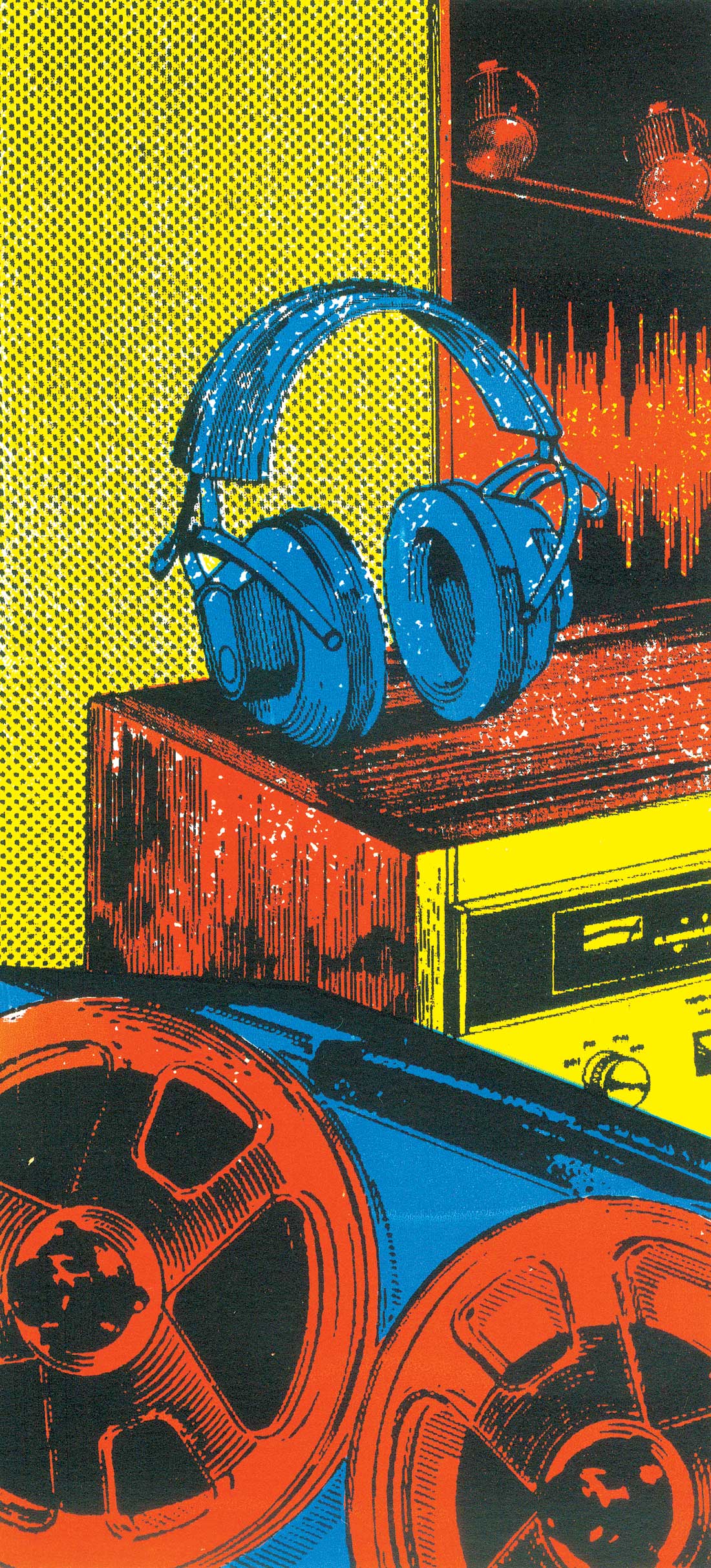I recently got two letters. The first one is from a good client (and nice guy) with whom I've done several album sessions in the past. The second is from a new reader in Scotland. I wanted to try and address the issues brought up here, and I asked Mike Caffrey to join me with his thoughts.
1. "Hi Larry, I just purchased a 16-track digital recorder and need some basic tips from a pro like yourself. I'd just like some direction on how to mic drums, and the best way to use compression. I have two Rode small diaphragm condensers and one AKG large diaphragm, then a bunch of good to average dynamic mics. I liked the drum sound you got with ___'s kit the last time we recorded, and I'd like to get as close to that with what I have. Hope I'm not being a pain in the ass, and that things are going well for you."
2. "I was saving up to record in a studio, but have been toying with the idea of recording at home. I have a Yamaha MD4S 4-track, a Shure SM57 and 58. What other kit would I need to buy in order to record properly at home? I would have it mixed at a studio but just wasn't sure what else to buy to make this happen. Am I wasting my time financially and better just saving for the studio? I really love a lot of the recordings that you have been involved in so thought, "Who better to email?" I have a couple of songs on MySpace which would give you an idea of my sound. I would be honoured if you could give them a listen. www.myspace.com/grahamrydermusic" — Graham Ryder
These are great, legitimate questions that deserve considerate answers, however they are the result of a bigger picture. We all can make choices. Being honest with oneself is a difficult skill to develop, but possibly the most important life skill to have. If you find yourself in a quandary, why is that? Is it the world or have you made a bad choice? -MC
Much of the content in Tape Op is about empowerment and sharing knowledge. In my opinion, nothing should stop an artist from recording music. One of the reasons I started this magazine was the frustration from talking to people that would be "waiting" for better or more recording gear in order to create their masterpiece, or from friends that would solely judge a studio by their track count (pre DAW!) or their gear list, as opposed to listening to records that had been recorded there.
All along I've walked a line between being an owner of a commercial recording studio (Jackpot!) and an advocate for do-it-yourself home recording (some elements of Tape Op). I believe in the benefits of both, and I've always taken steps to integrate my pro studio with home recordists and their needs, and to provide a comfortable place for people to work.
So what about letter #1? If he really wants the sound I got on his drums last time, he probably needs to book time and track the drums in my studio with me engineering. Maybe he could hire me to come to his space and show him how to better set up for drum recording. Or he could attend one of my recording workshops (if I ever get those back on track). It took me years to get decent at recording drums — is someone gonna steal my "secrets" of drum mic'ing?
Tiger Woods could show me his tricks, correct me when I tried to imitate them and I still wouldn't hit he ball like him, so it's no threat to me to give away my secrets. Plus, I always get good ideas in return. -MC
There's certainly no way I can convey every slight thing I do in a recording session via email. What does it take? Drum tuning, damping, room and placement, squeak- stopping, mic choice, mic placement, preamp choice, listening, changing mics, placement and preamps, checking phase, adding compression and EQ, listening, changing shit again, tracking the song and finally deciding if a take is good or not, possibly editing takes — not to mention the mix process. An engineer carries a lot of info around in their head, and it's not easy to convey all this to someone just starting out. I know that when I was learning in my basement studio, I just kept trying different techniques with what I had, and did a lot of research (books and mags) on what other people were doing (which is so much easier with the Internet these days).
What should Graham do? If he hasn't already shown an inclination towards self-recording, maybe it's not his cup of tea and he should stick to writing and performing music. I know that when my first 4-track came home I never stopped recording — the fact that he has one and doesn't seem to know what he or it is capable of suggests that he's not really into (or obsessed by) the recording process. So, now he's putting his preproduction time and effort into learning engineering rather than making his music the best it can be. -MC Ouch, but a valid point. I've met many songwriter/musicians that have learned enough to record quick and dirty demos, but for the most part focus their energy on writing and playing. I've also known a number who have mastered roles on both sides of the glass.
There's a tradeoff between having unlimited time and having better gear and experienced people to help you out. When your skills as a musician are inadequate, more time may be important, but it's rare that people "out-write" their chops — meaning if they write a song that's any good they'll probably be able to play it adequately. People who "write in the studio" may be better served by owning their own gear. -MC
In each case it's really up to the artist to decide which path to take. And if they record at home, there's not much more I can say than, "Start recording, and when you don't like the sounds you're getting, do something to change the results." And given the sheer amount of recording equipment available these days it's very, very difficult to recommend gear to people. What more would Graham need? I dunno. He might be happy recording into what he has right there. Is he going to get great sounds? That's really for him to decide and then act upon.
If you want to succeed artistically and financially, good is not good enough — every aspect has to be great. You need to know yourself honestly, and know what you're great at and do that. If you're going to set out to do a project and you're not going to strive for the ideal process and make it the absolute best it can be, why bother doing it at all? -MC
You guys want the tough answer? Experiment and learn. You want an easy answer? Hire someone whose work you respect.
I think in conclusion the goal is to make the best possible music in the best possible way. -MC


